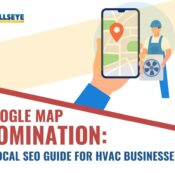

Dominate Google Rankings – SEO Tactics for Maximum Visibility in Home Automation!

Home Automation SEO helps smart home businesses rank higher on Google. By optimizing content, targeting local searches, and improving site performance, you can boost visibility, attract more customers, and stay ahead of competitors in the growing home automation industry.
Call Now For The Expert Digital Marketing Solutions: 561-277-0148
Introduction
Welcome to the ultimate guide to Home Automation SEO – the secret sauce behind boosting your smart home business in search engine results. Whether you’re a startup or an established name in the home automation world, getting noticed online is more crucial than ever. In this blog, we’ll walk through powerful SEO tactics tailored specifically for smart home businesses that want to dominate Google rankings and grow their digital presence.
Why Home Automation SEO Is Non-Negotiable in Today’s Digital Age
The smart home industry is exploding. From voice-activated lights to entire home security systems controlled via smartphone, home automation is now a lifestyle. But here’s the thing: with so many players in the market, visibility is the name of the game.
Home Automation SEO isn’t just a marketing buzzword – it’s your competitive edge. Proper SEO ensures your business ranks high when potential customers search for solutions. In a niche this tech-savvy, standing out digitally is essential. Implementing SEO for Home Automation means more traffic, more leads, and ultimately more conversions.
Google’s Love Language – How SEO Works for Smart Homes
The Power of Keywords and Search Intent
Let’s talk about the backbone of SEO: keywords. If you want your smart home services to show up on Google, you need to use the exact terms your customers are searching for. This includes phrases like Smart Home Search Visibility, Home Tech SEO Optimization, and of course, Home Automation SEO.
Understand your audience’s intent. Are they looking for installation services? Product comparisons? DIY tips? Match their needs with content tailored to answer those queries.
User Experience and SEO – A Match Made in Google Heaven
SEO is more than just sprinkling keywords into your content. Google favors websites that are easy to navigate, mobile-friendly, and fast-loading. If your site feels clunky or confusing, users bounce, and so will your rankings.
A seamless experience keeps users on your site longer, increasing dwell time and sending positive signals to Google. This is crucial for improving your Smart Home Google Ranking.
On-Page SEO for Home Automation – Get Your Site Google-Ready
Smart Content for Smart Homes
Your content should inform, engage, and convert. Blogs, product pages, and FAQs – all these can be optimized. Use the primary keyword Home Automation SEO naturally throughout your content. And don’t forget to boost Home Automation SEO by answering common customer questions.
Example: If you sell smart thermostats, write a guide like “Top 5 Smart Thermostats for 2025” with keyword-rich subheadings. Help users make informed decisions while signaling relevance to search engines.
Metadata That Matters
Metadata is the invisible magic behind your content. Optimize title tags, meta descriptions, and image alt texts with keywords like Smart Home Google Ranking. This tells Google what each page is about and increases your chance of showing up in search snippets.
Pro Tip: Keep titles under 60 characters and descriptions under 160.
Local SEO for Home Automation – Dominate Your Neighborhood
Let’s face it: most home automation businesses serve specific regions. If you’re not leveraging Local SEO for Home Automation, you’re missing out on ready-to-buy customers nearby.
Optimize your Google Business Profile (formerly Google My Business). Include accurate NAP (Name, Address, Phone), business hours, and high-quality images. Ask satisfied customers for reviews – these boost credibility and rankings.
Use location-specific keywords like Home Automation Services in Dallas or “Smart Home Installation Miami” to climb the Google Rankings for Home Automation locally.
Technical SEO for Smart Home Websites – Don’t Let Bots Bounce
Crawlability and Indexing
Google’s bots (also called spiders) need to easily crawl your site. A well-structured sitemap and robot.txt file help them index your pages efficiently. Broken links or slow load times can hurt your SEO.
Schema Markup for Home Tech Services
Want those attractive rich snippets to show up in search results? Schema markup is your answer. It gives search engines more context about your content.
Use schema for:
- Product listings
- Reviews and ratings
- Service areas
- FAQs
Implementing structured data is a great move in SEO Marketing for Home Tech.
Building Authority – Backlink Strategies for Home Automation SEO
Backlinks are one of the most powerful ranking factors. The more high-quality sites that link to yours, the more authoritative Google believes you are.
Here’s how to earn them:
- Write guest posts for tech blogs.
- Get featured in local news.
- Collaborate with smart home influencers.
- Share useful how-to guides that others want to reference.
These strategies enhance Organic SEO for Smart Homes and position your brand as a leader.
Tracking Your SEO Progress – Tools and KPIs for Smart Home Success
Analytics and Search Console Tips
You can’t improve what you don’t measure. Use tools like Google Analytics and Google Search Console to monitor:
- Organic traffic
- Keyword rankings
- Bounce rate
- Conversion rate
Regularly checking your metrics helps you adapt your strategy and further boost Home Automation SEO efforts.
Pro Tip: Look at what pages are getting the most visits and double down with similar content.
Common SEO Mistakes in the Home Automation Niche (and How to Avoid Them)
Let’s break down a few frequent SEO blunders:
- Keyword Stuffing: Overusing keywords makes your content unreadable.
- Ignoring Mobile Optimization: Most users browse on their phones.
- Skipping Image Optimization: Every image should have an alt tag.
- Neglecting Local SEO: If you’re a local provider, this is crucial.
- Lack of Content Updates: Google loves fresh content.
Avoiding these mistakes will ensure your Home Automation SEO strategy stays on track.
Future-Proofing Your Strategy – What’s Next for Home Automation SEO?
SEO isn’t static. Trends evolve, and staying ahead is key. Here’s what to watch:
- Voice Search: As people ask Alexa or Google Assistant to find services, optimizing for conversational keywords is critical.
- AI-Powered Search Engines: Google’s AI is getting smarter. Context matters more than exact matches.
- Zero-Click Searches: Featured snippets often answer queries without users clicking. You want to win those snippets.
To stay ahead, continue adapting your Home Automation SEO with these innovations.
Final Thoughts – Be the Smartest Home in the SERPs
Home automation is all about innovation, and your digital marketing should reflect that. With a powerful, targeted Home Automation SEO strategy, you can boost visibility, attract more leads, and grow your smart home business.
Implement these SEO tactics consistently, track your results, and keep learning. Remember, SEO is a marathon, not a sprint – but the long-term rewards are worth every step.
FAQs – Home Automation SEO Made Simple
What makes Home Automation SEO different from regular SEO?
It’s tailored to a niche market with specific keywords, tech-savvy users, and local intent. It requires strategies focused on smart home content, products, and regional services.
How can I improve Smart Home Google Ranking fast?
Start with technical fixes, optimize on-page content, claim your Google Business Profile, and earn quality backlinks.
Is Local SEO for Home Automation still relevant in 2025?
Absolutely. As more customers search for nearby services, local SEO becomes even more critical.
What’s the best strategy to boost Home Automation SEO organically?
Regular content creation, keyword targeting, backlink building, and schema markup all play essential roles.
Which tools help track SEO Marketing for Home Tech?
Use Google Analytics, Search Console, Ahrefs, SEMrush, and tools like Moz to monitor your progress and optimize continuously.




